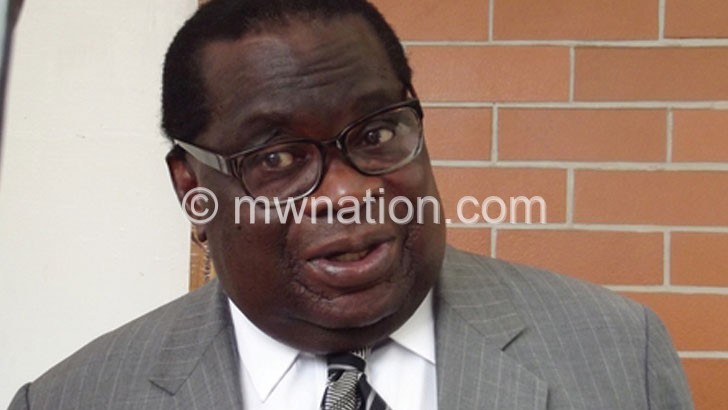Rising inequality Blamed on policies
Economist Richard Mussa has blamed the rising levels of inequality in the country on policy choices he says favour the rich.
Mussa, a senior lecturer in economics at the University of Malawi’s Chancellor College, expressed the sentiments through his presentation titled “A Dangerous Divide: The Nature of Inequality in Malawi” at the ongoing Economics Association of Malawi (Ecama) 2016 Annual Economic Conference in Mangochi.
His presentation comes against a background of a report released by Oxfam in December 2015 titled “A Dangerous Divide: The State of Inequality in Malawi” which showed the growing levels of inequality in the country with the gap between the richest 10 percent and the poorest 40 percent widening by almost a third between 2004 and 2011.

poses: Gondwe
According to the report, during the same period, the country’s Gini coefficient-a measure of the extent of distribution of income-also jumped from 0.39 (at par with Cameroon) to 0.45 (at par with Democratic Republic of Congo).
The Oxfam study showed that if inequality increases at the same pace it did between 2004 and 2011 with consumption projected to grow by 10 percent, the projected number of poor people in 2020 would be 9.5 million.
A further worsening of inequality by 10 points from 0.45, would see 10.2 million poor people in Malawi in 2020.
In his presentation, Mussa said: “Poverty has declined marginally from about 52 percent to about 50 percent over the five-year period. With all that growth, the question would be where has that growth gone?
“There are a number of factors leading to this inequality in Malawi, resting on policies. These include taxation, education system and health system, all of which favour the rich. If the rich are the only ones who are supposed to access quality education services, then that leads to inequality.”
He said Malawi’s inequality levels are high in urban areas compared to poverty levels which he said are “stubbornly high” in the rural areas.
Mussa said high levels of inequality are registered in the Southern Region followed by the Central Region and the Northern Region comes third.
In his remarks during the launch of the Oxfam report last December, Minister of Finance, Economic Planning and Development Goodall Gondwe agreed with the report’s observations.
He acknowledged the threat that inequality poses to the goal of attaining sustainable development for Malawi.
Said the minister: “If this is not reversed, our road to eradication of poverty will be a long one. And, in fact, may not be reached for many generations. Poverty may even increase in this country.”
In recent years, Malawi has seen its economic growth gains not spreading evenly, widening the gap between the rich and poor with about half the estimated population living below the poverty line. n





